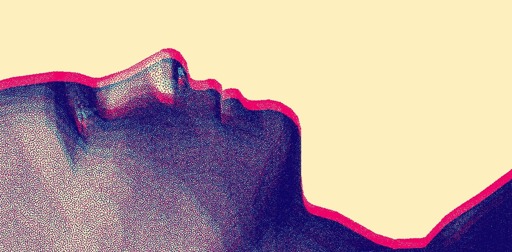Keep in mind that your descendents probably won’t care about a huge majority of what you leave them. Photos annotated with a date, time, people in them, and an explanation, maybe, but generally my generation hasn’t given a shit about the tonnes of books, music, photos, furniture, knick knacks, and antiquities bequeathed to us. It would be bizarre if our kids didn’t maintain that tradition.
I think it would be interesting to have some kind of global archive. Even if descendants don’t care “now” has the potential to be the beginning of the best documented era in history. Historians would kill for photographs by random average people from any other time.
A lot of people thought that that’s what the Internet would be, but that’s obviously not the case. And I know the “right to be forgotten” is a thing, and deservedly so, but at some point you’re throwing out the wine with the amphora.
Doesn’t archive.org provide that?
In theory yes, but not a lot of people are uploading their family photo albums AFAIK.
Thanks to capitalism, you don’t own most of that “digital legacy” and do not have the right to bequeath or transfer ownership for the vast majority of it.
You can take ownership of a lot of it. Thanks to GDPR, major platforms offer ways to export data like photos, videos, activity on their platforms, messages etc. Store locally first, avoid over reliance on online platforms for safekeeping your data.
Also, we need to fight to keep ownership of digital media while we still can. Buy movies and music on physical media so they keep making them. Buy physical books. Buy from DRM free platforms like GoG. As convenient as it may be, avoid over reliance on streaming services.
And of course, make backups of anything you care about. Only you can keep your data safe. Online services will only keep your data as long as they can exploit it to make money.
My digital legacy is going in the dumpster, unless somebody figures out how to break encryption that I’ve never shared the password for.
Probate can figure out the rest.
I plan on being dead then, so do what you want with my digital wake.
I’m just trying to figure out a way to keep my 20+ tb of Linux isos curated and still accessible.
In 2017, I helped develop key recommendations for planning your digital legacy. These include:
- creating an inventory of accounts and assets, recording usernames and login information, and if possible, downloading personal content for local storage
- specifying preferences in writing, noting wishes about what content should be preserved, deleted, or shared – and with whom
- using password managers to securely store and share access to information and legacy preferences
- designating a digital executor who has legal authority to carry out your digital legacy wishes and preferences, ideally with legal advice
- using legacy features on available platforms, such as Facebook’s Legacy Contact, Google’s Inactive Account Manager, or Apple’s Digital Legacy.
A long time ago, I had the idea for a startup to keep digital material, including accounts, passwords, old documents, etc. in a digital vault that would be released to the next-of-kin when someone dies. It would also convert documents to newer formats so your old unpublished WordPerfect novel could be opened and read by the grandkids (should they choose).
Problem is, nobody would (or should) trust a startup with that material. This is stuff that should be around for many decades and most startups go out of business.
Bitwarden does all that. If you pay the subscription you get a GB of storage and delegate emergency access to other people.




